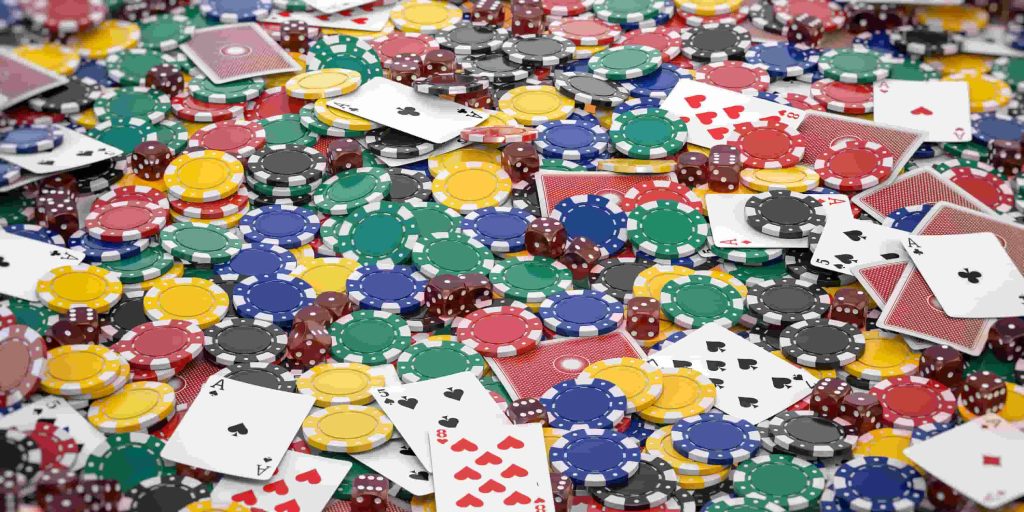Gambling has been a form of entertainment for centuries, offering players a chance to experience excitement, competition, and the thrill of risk. For many, placing a bet or spinning the roulette wheel is simply a fun diversion, a way to enjoy time with friends or engage with their favorite games. However, there is a point where harmless entertainment can evolve into something more dangerous. Recognizing when the fun stops—and when gambling begins to cross into addiction—is critical for maintaining a healthy relationship with gaming activities.
The growth of online gambling and crypto slots, particularly through platforms like a bitcoin casino, has made access to games easier and faster than ever before. Bitcoin casinos offer the convenience of instant deposits, anonymous play, and 24/7 availability, which can be a double-edged sword. On one hand, players can enjoy gaming from the comfort of their homes and take advantage of promotions and bonuses. On the other hand, the constant accessibility and fast-paced nature of online play can make it harder to recognize when gambling habits are becoming unhealthy. Without the natural stopping cues that exist in physical casinos, like travel time or closing hours, it’s easy to lose track of time and money in a digital environment.

Understanding Healthy vs Problematic Play
Healthy gambling is characterized by moderation and control. Players set clear limits for themselves, both financially and in terms of time spent playing. They treat gambling as a form of entertainment, not as a way to make money or escape from life’s problems. Wins are seen as a bonus, and losses are accepted as part of the experience without causing undue stress or financial hardship.
Problematic gambling, by contrast, often starts subtly. It might begin with chasing losses, increasing bet sizes to recoup money that was lost in previous sessions. Or it might involve playing for longer periods than intended, ignoring responsibilities, or feeling anxiety when not gambling. Over time, these behaviors can escalate, leading to serious financial, emotional, and relational consequences.
Warning signs of gambling addiction include lying about gambling habits, using gambling as an emotional escape, borrowing money to fund gambling, and continuing to gamble despite mounting losses. If gambling no longer feels like a choice but rather a compulsion, it’s a strong indication that the line between entertainment and addiction has been crossed.
Recognizing these early signs is crucial. The sooner a player acknowledges unhealthy patterns, the easier it is to seek help and restore balance before more serious problems develop.
The Role of Online Platforms in Promoting Responsible Play
Responsible gaming initiatives have become a major focus for online casinos, including bitcoin casinos. Many platforms now offer tools that allow players to set deposit limits, cooling-off periods, or self-exclusion options. These features are designed to help players maintain control over their gambling habits and take proactive steps if they notice warning signs.
Bitcoin casinos, in particular, often offer added privacy and faster transactions, which can be both a benefit and a risk. The ease of moving funds in and out can tempt players to chase losses more aggressively. However, reputable bitcoin casinos balance this with clear responsible gaming sections, links to support organizations, and easy-to-use self-exclusion features.
It’s also important for players to take personal responsibility. Simple habits like setting a timer before playing, deciding on a strict budget, and taking regular breaks can make a significant difference. Treating gambling sessions like a scheduled activity rather than a spontaneous or endless experience helps maintain a sense of structure and purpose.
Additionally, understanding the odds and the nature of the games you are playing can promote a healthier mindset. Knowing that the house always has an edge—and that losses are a natural part of gambling—helps reduce unrealistic expectations and emotional reactions to losing.
Seeking Help and Setting Boundaries
If gambling stops being fun and starts feeling stressful or compulsive, it’s important to seek help. Numerous organizations specialize in supporting individuals with gambling problems, offering resources such as counseling, hotlines, and support groups. Admitting there is an issue is the first and often hardest step, but it opens the door to recovery and a healthier life.
Setting strong personal boundaries is vital, even if you are not currently experiencing a problem. Before playing, decide how much money and time you are willing to spend—and stick to it no matter what. Never gamble with money that is needed for essential expenses like rent, bills, or food. And remember, gambling should never be a way to solve financial problems; it should only be a way to enjoy some entertainment with full acceptance of possible losses.
Friends and family can also play a role by offering support, keeping open lines of communication, and helping monitor any concerning behavior. Gambling should be a social and enjoyable activity, not an isolating one.
Conclusion
Gambling, when approached responsibly, can be an enjoyable form of entertainment. But the line between fun and addiction can be thin, especially with the easy access provided by online platforms like bitcoin casinos. Recognizing the signs of problematic behavior, taking advantage of responsible gaming tools, and setting firm personal limits are essential steps to ensure that gambling remains a positive part of life. Knowing when the fun stops—and taking action when needed—can make all the difference between a healthy hobby and a harmful habit.